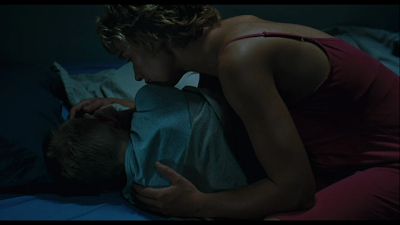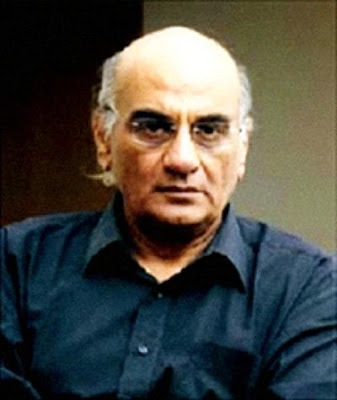THAMIZH STUDIO
Presents
Lenin Award winner
Amshan Kumar’s two films
SUBRAMANIA BHARATHI
&
ORUTHI
5th August 2012; 5 pm
Perks Mini Theater
Thamizh Studio is a frontline film movement in Chennai. Their 2012 Lenin award for best filmmaker goes to Amshan Kumar. Prior to the awards function which will be held at Chennai on 15th August 2012 , Amshan Kumar’s two films are being shown in major cities of Tamilnadu.
Subramania Bharati:

The story is set in the late nineteenth century. Sevani, a dalit girl is in love with an upper caste boy Ellappan.Both are shepherds. Plans are afoot to get Ellappan married within his own caste.
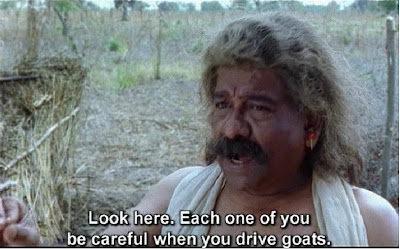 John Williams, an English Revenue Divisional Officer arrives in the village to probe into the claim of the Zamindar that people do not pay tax. He comes to know through Sevani that the season was good , people pay tax regularly which the Zamindar has misappropriated for his pleasurable ends.
John Williams, an English Revenue Divisional Officer arrives in the village to probe into the claim of the Zamindar that people do not pay tax. He comes to know through Sevani that the season was good , people pay tax regularly which the Zamindar has misappropriated for his pleasurable ends.
John Williams effectively intervens and brings permanent relief to villagers through tax reforms.The villagers know that this has become possible due to Sevani but they are helpless to fulfill her single wish of uniting her with her lover.Sevani is finally left with the quill pen that changed the destiny of her people.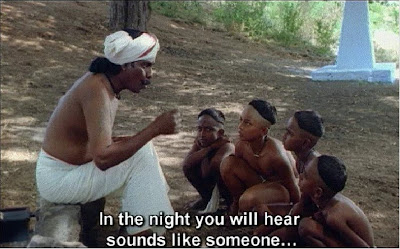 The film was shown in Indian Panorma and thereafter in several International film festivals. It won the Best film award from Government of Puduchery and Tamil Association of New Jersey, USA.
The film was shown in Indian Panorma and thereafter in several International film festivals. It won the Best film award from Government of Puduchery and Tamil Association of New Jersey, USA.
(Screenings supported and arranged in Coimbatore by Konangal Film Society )
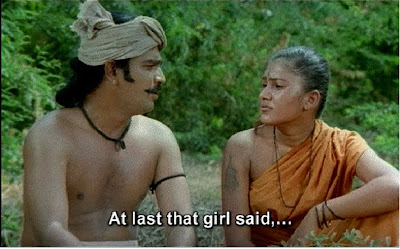

He has conducted film appreciation courses to various age groups and gives lectures to visual communication and Mass Media students in Tamilnadu. Also he co-edited Salanam, a film magazine that was devoted to the study of serious efforts in world cinema. As one who is fond of developing film culture since his college days, he has been associating with and founding film societies like Trichy Cine Forum which was one of the earliest in Tamilnadu and Darshana in Coimbatore. In 2005 he participated in a seminar on ‘Parallel Film Movement in India’ in Kuala Lumpur.
He has directed more than 25 documentaries. His documentary Subramania Bharati the great Tamil poet that won various awards including the Best Documentary Award from Cinesangam, London, Nobel Laureate C.V.Raman, Third Theatre of Bengali Playwright and director Badal Sircar, Ashokamitran, Modern Art in Tamilnadu and Reaching the Unreached are some of his documentaries that have been widely appreciated. His most recent documentary is `Manakkal S.Rangarajan: Carnatic Musician of the Era`
‘Oruthi’ his feature film based on a story written by Sahitya Akademi award winner Ki.Rajanarayanan, was shown in Indian Panorama of International Film Festival of India in 2003 and won the Puducherry State Award for the Best Film and award from Tamil Association of New Jersey, USA.
‘Pesum Porchithram’ his anthology of articles on films was published in October 2007. It was released by Phalke Award winner Adoor Gopalakrishnan at the Chennai International Film Festival in December 2007.
He headed the panel of juries for the Vimbam International Short Film Festival held in London in November 2010.
Amshan Kumar is a post graduate in English Literature and regularly writes on film and other subjects in various Tamil and English magazines. He lives in Chennai.
Subramania Bharati:
Documentary.1999. Script .Indira Parthasarathy. Camera.P.S.Dharan. Music.L.Vaidyanathan.Editing.Gautam.Produced by N.Muruganandam.
Direction.Amshan Kumar.
 Subramania Bharati (1882-1921), the renaissance figure of modern Tamil Litreature was born in Ettayapuram, South India.As asingle major force he revolutionized Tamil poetry with great lyrical beauty and brought it closer to people as never before.He was drawn early in his life towards mainstream nationalism and his journalistic writings incensed the British government. Bharati was a true modern championing the cause of nationalism, casteless society and equality for women. He was a unique spiritualist and expressed profound compassion for all living beings.
Subramania Bharati (1882-1921), the renaissance figure of modern Tamil Litreature was born in Ettayapuram, South India.As asingle major force he revolutionized Tamil poetry with great lyrical beauty and brought it closer to people as never before.He was drawn early in his life towards mainstream nationalism and his journalistic writings incensed the British government. Bharati was a true modern championing the cause of nationalism, casteless society and equality for women. He was a unique spiritualist and expressed profound compassion for all living beings.
Direction.Amshan Kumar.
 Subramania Bharati (1882-1921), the renaissance figure of modern Tamil Litreature was born in Ettayapuram, South India.As asingle major force he revolutionized Tamil poetry with great lyrical beauty and brought it closer to people as never before.He was drawn early in his life towards mainstream nationalism and his journalistic writings incensed the British government. Bharati was a true modern championing the cause of nationalism, casteless society and equality for women. He was a unique spiritualist and expressed profound compassion for all living beings.
Subramania Bharati (1882-1921), the renaissance figure of modern Tamil Litreature was born in Ettayapuram, South India.As asingle major force he revolutionized Tamil poetry with great lyrical beauty and brought it closer to people as never before.He was drawn early in his life towards mainstream nationalism and his journalistic writings incensed the British government. Bharati was a true modern championing the cause of nationalism, casteless society and equality for women. He was a unique spiritualist and expressed profound compassion for all living beings.
This is the first full length documentary on Bharati that gives an account of his life and the turbulent times he lived in. Filming is done in Chennai, Madurai, Ettayapuram, Tirunelveli, Pondicherry and Benares, the places associated with his life. Two elderly persons who had acquaintance with him have recounted their memories in this.The documentary has won several awards.
Oruthi2003/91minutes
Story.Ki.Rajanarayanan. Camera.P.S.Dharan. Editing.Satish-Harsha. Music.L.Vaidyanathan.
Produced by. Thara and Gopal Rajaram. Screenplay, dialogues and direction. Amshan Kumar
Cast:Poorvaja, Bharati Mani, Thomas Ober and Ganesh Babu.
Produced by. Thara and Gopal Rajaram. Screenplay, dialogues and direction. Amshan Kumar
Cast:Poorvaja, Bharati Mani, Thomas Ober and Ganesh Babu.
The story is set in the late nineteenth century. Sevani, a dalit girl is in love with an upper caste boy Ellappan.Both are shepherds. Plans are afoot to get Ellappan married within his own caste.
 John Williams, an English Revenue Divisional Officer arrives in the village to probe into the claim of the Zamindar that people do not pay tax. He comes to know through Sevani that the season was good , people pay tax regularly which the Zamindar has misappropriated for his pleasurable ends.
John Williams, an English Revenue Divisional Officer arrives in the village to probe into the claim of the Zamindar that people do not pay tax. He comes to know through Sevani that the season was good , people pay tax regularly which the Zamindar has misappropriated for his pleasurable ends.John Williams effectively intervens and brings permanent relief to villagers through tax reforms.The villagers know that this has become possible due to Sevani but they are helpless to fulfill her single wish of uniting her with her lover.Sevani is finally left with the quill pen that changed the destiny of her people.
 The film was shown in Indian Panorma and thereafter in several International film festivals. It won the Best film award from Government of Puduchery and Tamil Association of New Jersey, USA.
The film was shown in Indian Panorma and thereafter in several International film festivals. It won the Best film award from Government of Puduchery and Tamil Association of New Jersey, USA.(Screenings supported and arranged in Coimbatore by Konangal Film Society )

Amshan Kumar
Amshan Kumar is a film maker and writer. His first book EHUTHUM PREGNIYUM published in 1980 deals with topics on writing and philosophy. His book ‘Cinema Rasanai’ written in 1990 in Tamil on film appreciation is the first book of its kind. It is prescribed as a text in many universities in Tamilnadu, Puducherry and Batticaloa in Sri Lanka.He has conducted film appreciation courses to various age groups and gives lectures to visual communication and Mass Media students in Tamilnadu. Also he co-edited Salanam, a film magazine that was devoted to the study of serious efforts in world cinema. As one who is fond of developing film culture since his college days, he has been associating with and founding film societies like Trichy Cine Forum which was one of the earliest in Tamilnadu and Darshana in Coimbatore. In 2005 he participated in a seminar on ‘Parallel Film Movement in India’ in Kuala Lumpur.
He has directed more than 25 documentaries. His documentary Subramania Bharati the great Tamil poet that won various awards including the Best Documentary Award from Cinesangam, London, Nobel Laureate C.V.Raman, Third Theatre of Bengali Playwright and director Badal Sircar, Ashokamitran, Modern Art in Tamilnadu and Reaching the Unreached are some of his documentaries that have been widely appreciated. His most recent documentary is `Manakkal S.Rangarajan: Carnatic Musician of the Era`
‘Oruthi’ his feature film based on a story written by Sahitya Akademi award winner Ki.Rajanarayanan, was shown in Indian Panorama of International Film Festival of India in 2003 and won the Puducherry State Award for the Best Film and award from Tamil Association of New Jersey, USA.
‘Pesum Porchithram’ his anthology of articles on films was published in October 2007. It was released by Phalke Award winner Adoor Gopalakrishnan at the Chennai International Film Festival in December 2007.
He headed the panel of juries for the Vimbam International Short Film Festival held in London in November 2010.
Amshan Kumar is a post graduate in English Literature and regularly writes on film and other subjects in various Tamil and English magazines. He lives in Chennai.



